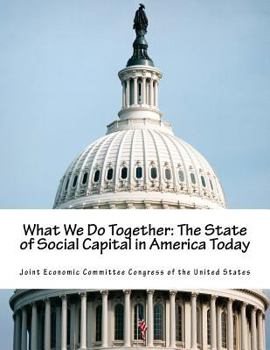What We Do Together: The State of Social Capital in America Today
The United States faces very real economic challenges. Economic growth during the recovery has been meager and uneven. The U.S. economy has become less dynamic and innovative than in recent decades. We miss the strong productivity growth America enjoyed in the mid-twentieth century and the unusually large wage gains it brought. However, in historical and comparative perspective most Americans enjoy unprecedented material living standards. Our economic problems often take the form of unsatisfactory rates of improvement. We are growing richer less quickly than we did when we were poorer. Many Americans-poor, middle class, and wealthy-feel that something in our society is amiss. It is a feeling that cannot be reduced to economic anxiety. Rather, there is a sense that our social fabric in America is fraying. And these concerns are reflected in objective measures of family and community health. To cite just a few of the trends that may be grouped under the rubric of "social capital" marriage and church going have declined; distrust of the Nation's institutions has grown; mixed-income neighborhoods have become rarer; regional polarization has increased; and young men who are neither working nor looking for work have become more numerous and more isolated. We do less together than in the past, and we are worse off for it, economically and otherwise. Many of our ostensibly economic problems reflect the withering of our associational life. For example, the fragility of so many families today reduces upward mobility. And diminishing trust has implications for the decline in business dynamism since risk-taking requires confidence in each other and our institutions.
Format:Paperback
Language:English
ISBN:197802987X
ISBN13:9781978029873
Release Date:October 2017
Publisher:Createspace Independent Publishing Platform
Length:176 Pages
Weight:0.93 lbs.
Dimensions:0.4" x 8.5" x 11.0"
Customer Reviews
0 rating





